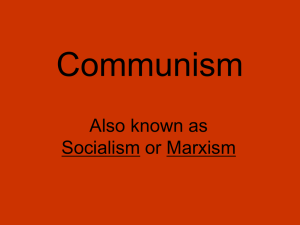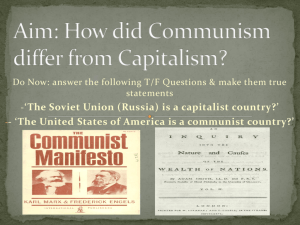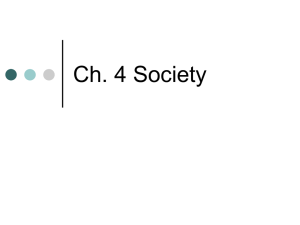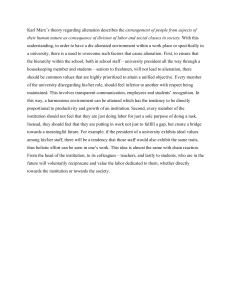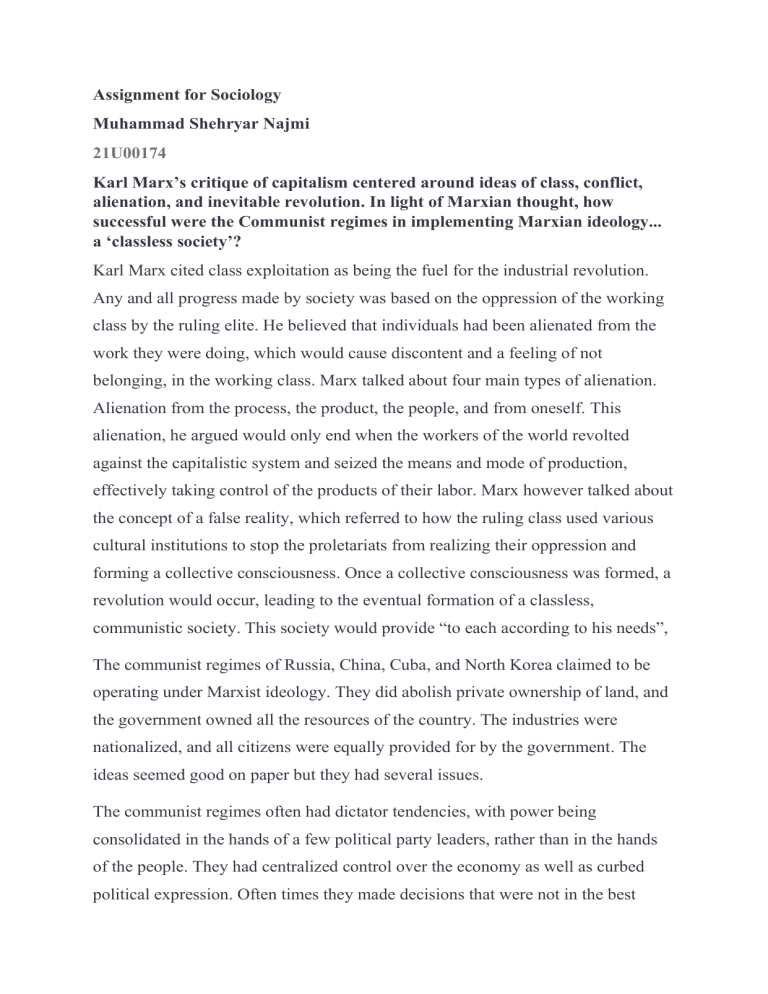
Assignment for Sociology Muhammad Shehryar Najmi 21U00174 Karl Marx’s critique of capitalism centered around ideas of class, conflict, alienation, and inevitable revolution. In light of Marxian thought, how successful were the Communist regimes in implementing Marxian ideology... a ‘classless society’? Karl Marx cited class exploitation as being the fuel for the industrial revolution. Any and all progress made by society was based on the oppression of the working class by the ruling elite. He believed that individuals had been alienated from the work they were doing, which would cause discontent and a feeling of not belonging, in the working class. Marx talked about four main types of alienation. Alienation from the process, the product, the people, and from oneself. This alienation, he argued would only end when the workers of the world revolted against the capitalistic system and seized the means and mode of production, effectively taking control of the products of their labor. Marx however talked about the concept of a false reality, which referred to how the ruling class used various cultural institutions to stop the proletariats from realizing their oppression and forming a collective consciousness. Once a collective consciousness was formed, a revolution would occur, leading to the eventual formation of a classless, communistic society. This society would provide “to each according to his needs”, The communist regimes of Russia, China, Cuba, and North Korea claimed to be operating under Marxist ideology. They did abolish private ownership of land, and the government owned all the resources of the country. The industries were nationalized, and all citizens were equally provided for by the government. The ideas seemed good on paper but they had several issues. The communist regimes often had dictator tendencies, with power being consolidated in the hands of a few political party leaders, rather than in the hands of the people. They had centralized control over the economy as well as curbed political expression. Often times they made decisions that were not in the best interest of the working class and rather benefitted the political elite. Marx’s views on democracy were that it should extend beyond just political institutions and should also encompass economic decision-making. He argued that in a truly democratic society, workers would have a say in economic decisions and any such decisions would be made collectively rather than by a small group of individuals. The fact that dictator leaders like Lenin, Stalin, and Castro made decisions for the majority of the people, ran in opposite to Marx’s views. As for a classless society, the communist states gave power to a small number of political figures, while the general population suffered because of the economic and foreign relations decisions taken by them. There is evidence to suggest also that those with contacts in the government enjoyed better privileges and had access to more resources than those who did not. This meant that the states were not truly classless and did have a sort of hierarchical element to them. The communist states were marked with human rights issues, political discontentment, economic recession, and even widespread famine as was the case for Mao Zedong in China. They did not prosper and were ultimately overthrown and reverted back to capitalistic economies. To conclude, while the Communist states of the 20th century claimed to be working towards a classless society based on Marxist ideology, in practice they were, however, characterized by a ruling class that held significant power and influence over the economy and society. They were not capitalistic in nature but were not completely in line with Marxist ideology either.

